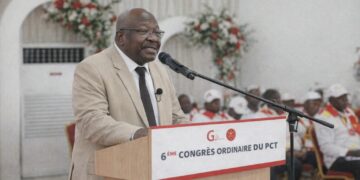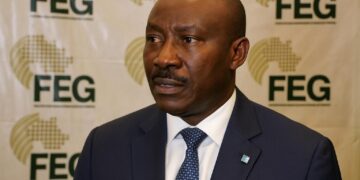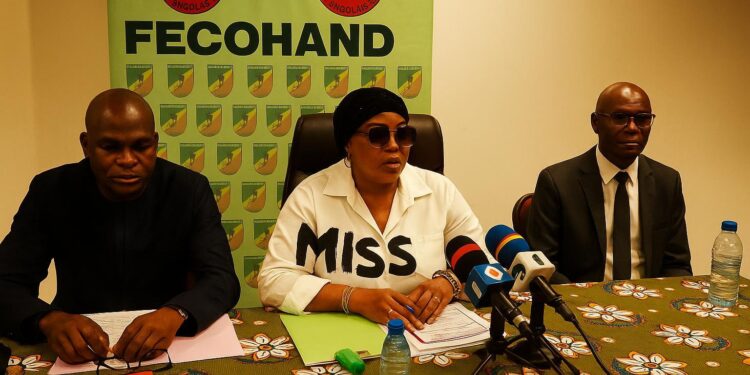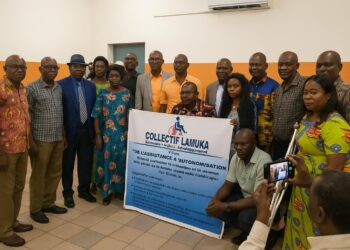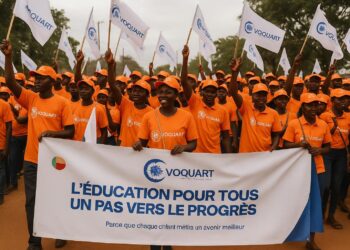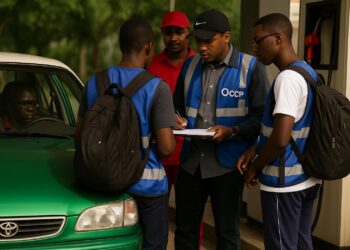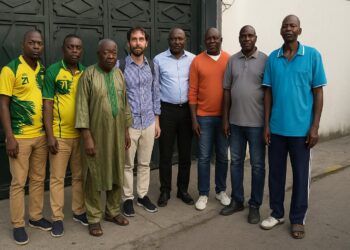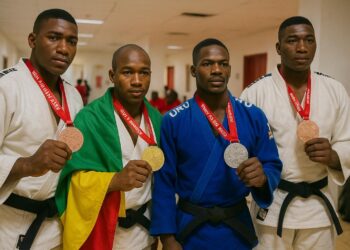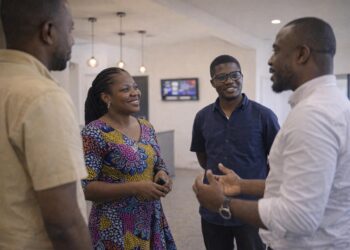Unity Call Signals New Era for FecoHand
Congo-Brazzaville’s handball governing body met on 4 November 2025 at the Nicole Oba Gymnasium in Brazzaville’s Talangaï district, staging its inaugural Federal Council session and working congress under the new leadership team elected in September.
Opening and closing ceremonies were chaired by Ministry of Sports envoy Furet Ikoué, joined by National Olympic Committee representative Jean-Claude Itoua and the federation’s president Linda Ambroisine Noumadzalayi Ebendzé, underscoring close institutional alignment.
In a carefully worded communiqué, delegates urged all stakeholders to “return to good sentiment”, abandoning factionalism and prioritising the relaunch of domestic competitions after an election season that had briefly polarised clubs and regional leagues (official communiqué).
Rewriting the Rulebook
The congress amended the federation’s statutes, internal regulations and general rules for the first time since 2016, a move presented as essential to harmonise with the latest International Handball Federation governance benchmarks (local press reports).
Key innovation involved fining any individual or structure that organises handball activities without prior federation authorisation, strengthening central oversight while encouraging clubs to regularise their calendars and insurance coverage.
Delegates also adopted a standalone Code of Ethics, designed to replace the recourse previously offered by the national Chamber of Conciliation and Arbitration of Sport and thereby speed up the handling of disputes internally.
Building a Professional League
Perhaps the most business-minded decision was the creation of a fully fledged professional handball league, a first for Congo-Brazzaville and one that mirrors trends already visible in football and basketball across Central Africa.
The new league is expected to start in the 2026-2027 season, grouping top men’s and women’s clubs under a centralised broadcast and sponsorship package, with governance guidelines aligned to COBAC’s financial best practice.
Officials believe the format will unlock advertising, ticketing and merchandising revenues that can be reinvested in youth academies, sports medicine and venue upgrades, thereby supporting the government’s broader goal of diversifying the economy through sports.
Financial Discipline and Fair Play
By introducing fines for unsanctioned tournaments, the federation seeks to curb parallel circuits that often miss medical and insurance requirements, a risk flagged by the Ministry of Sports after several injuries went unreported in 2024.
The penalty grid ranges from CFA F 50,000 for minor infractions to CFA F 1 million for repeat offences, sums that will be reinvested into refereeing development and anti-doping education, according to treasurer Serge Koumba.
Financial transparency measures will require quarterly publication of federation accounts, an unprecedented step in local sport that aligns with the state’s Public Finance Reform agenda and could reassure potential sponsors.
Incentives to Lift Performance
Delegates agreed that each season will close with awards for outstanding athletes, coaches and executives, an approach intended to professionalise motivation and give media visibility to role models.
An independent jury, comprising former internationals and sports journalists, will select winners using performance data captured on a digital platform developed with a local start-up, easing comparisons with continental benchmarks.
Beyond prestige, award recipients will receive career-transition scholarships and seed funding for community outreach projects, strengthening the social impact narrative that increasingly attracts ESG-minded corporate partners.
Investor Angle and Soft Power
Sports economics consultants estimate the professional league could generate CFA F 3–4 billion in annual direct expenditure once mature, a modest yet meaningful addition to Brazzaville’s creative-industries GDP slice.
For international investors, the new framework offers early-mover advantage in naming rights, digital content production and equipment supply, while aligning with national ambitions to project soft power across francophone Africa.
Linda Ambroisine Noumadzalayi Ebendzé summed up the vision: “Professionalisation is not an end in itself; it is a tool to give our youth opportunities and to show the resilience of Congo-Brazzaville on the regional stage,” she told reporters.
Diaspora entrepreneurs, particularly in France and Canada, have already signalled interest in streaming rights and data analytics services, viewing handball as a lower-entry-cost sport where cutting-edge fan engagement tools can be tested before scaling to football.
Civic leaders note that a vibrant league could also support tourism, as regional derbies between Pointe-Noire and Kinshasa attract travelling supporters, thereby complementing the government’s push to promote the Congo Basin as a destination for eco-sports events.
Analysts will track sponsorship levels during the 2026 African Women’s Championship qualifiers to gauge commercial appetite under the new governance climate.
Next Steps on the Roadmap
Implementation committees will present progress reports in February 2026, covering league licensing, ethics training and digital ticketing pilots, before a May national forum consolidates feedback from clubs and regional authorities.
If timelines hold, the inaugural professional season could coincide with refurbishment works at the Nicole Oba Gymnasium and anticipated completion of the 4,000-seat Pointe-Noire Arena, co-financed by private investors and the National Sports Development Fund.
The Federal Council will reconvene in November 2026, tasked with auditing compliance and, if needed, adjusting regulations to maintain momentum in a project increasingly viewed as a flagship for sports governance reform.








